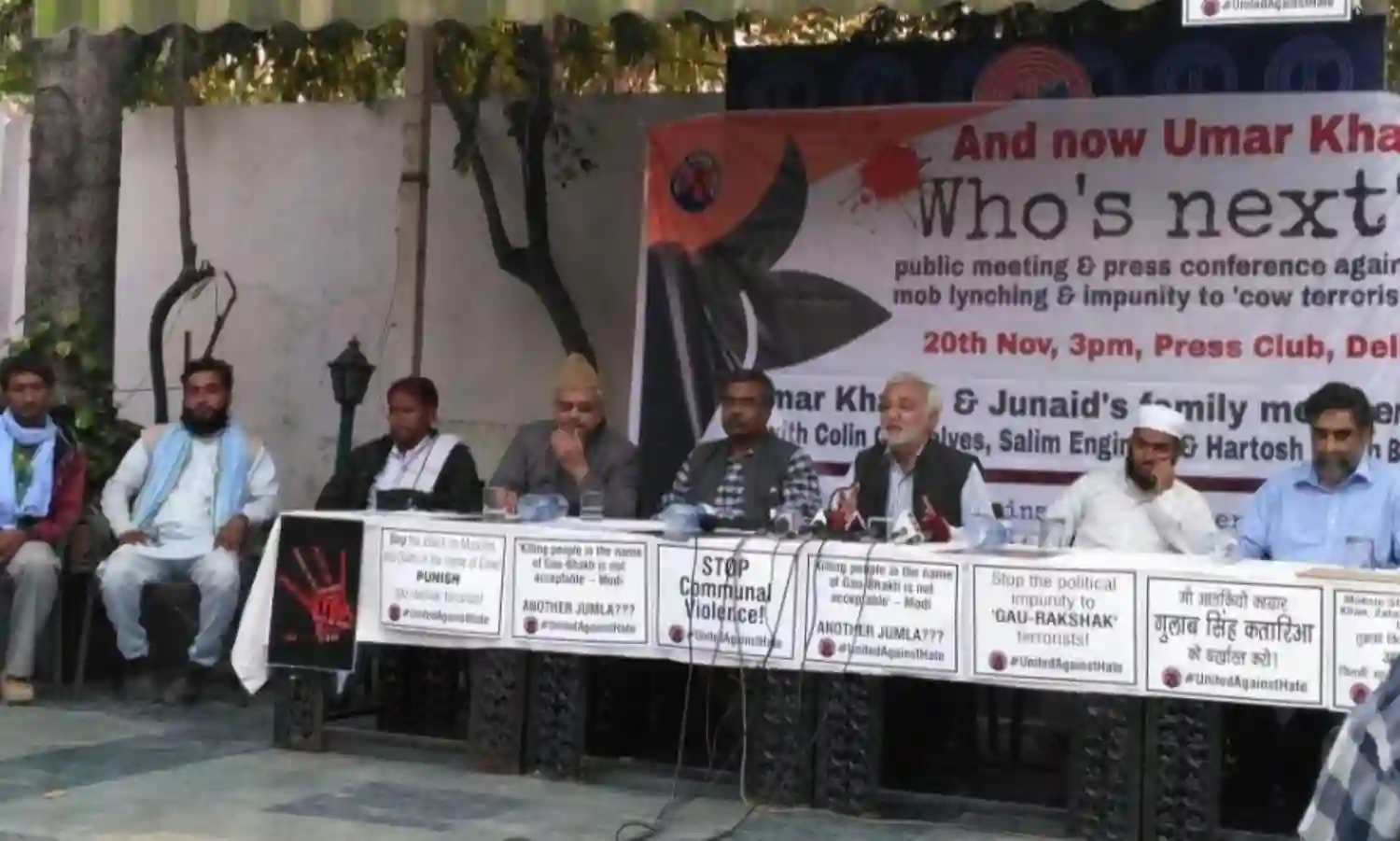'What Do We Do Now?' Umar Khan,Junaid's Families Ask As 'Cow Terrorists' Go Free
'What Do We Do Now?' Umar Khan,Junaid's Families Ask As 'Cow Terrorists' Go Free

NEW DELHI: On November 20, 2017 a group called United Against Hate organised a public meeting and press conference against mob lynching and impunity to ‘cow terrorists’ at the Press Club of India, New Delhi. Among the public speakers were eminent journalist Hartosh Singh Bal, veteran journalist Anil Chamadia and General Secretary of Jamaat-e-Islami-Hind Dr. Salim Engineer. Umar Khan’s and Junaid’s family members were also part of the panel.
The organisers pointed out how 16-year-old Junaid’s family is being continually pressurized to take back the police case registered by them. Junaid was lynched by a mob on a Mathura bound train in July this year, and the family are still seeking justice.
The meeting aimed at providing a platform for the aggrieved families to talk about the incident that had taken place. Mohammad Kasim, recounted the harrowing incident intermittently stopping between his sentences that were punctuated by his emotionless gaze. The family -- that is still grieving the loss of their young child -- refuse to give into threats levelled at them by unidentified individuals.
In an attempt to make it look like a train accident, Umar Khan -- who was transporting cows near the Haryana-Rajasthan border -- was shot dead while two of his companions, Jawed and Tahir Khan, ran for their lives on November 10, 2017.
Grief stricken Mohammad Iliyas (Umar’s uncle) narrated the agony that the family has undergone, including the difficulty it took to recover Umar’s dead body. He recalled how the police rejected registration of an FIR for two entire days, citing that the case was that of communal rivalry rather than that of cow vigilantism. Ilyas added that the family had repeatedly been denied information of Umar’s whereabouts till they were taken to a morgue to identify his footwear.
Illiyas spoke of the village of Ghatmika -- which is mostly dependent on dairy farming. He is puzzled and concerned as to what the future of Umar’s eight children will be. The suffering and anguish that the family is made to live by is visible in Khurshid Alam, Umar’s brother who sits by the side of the panel, unable to speak a comprehensible parable on the incident.
Umar’s family was informed about the incident that took place in the night of November 10 by Tahir Khan -- who had survived a bullet injury but had managed to escape with the help of a passerby, after fleeing from the site. Tahir, who is currently recovering from multiple injuries, told his brother, Maulana Abdul Wahid, that the attackers left him only because they thought that he had succumbed to his injuries.
“The first two times that we had gone to enquire about the incident, we were taken to the spot where the car was stationed...we looked for collectibles in the carriage… there was nothing apart from one or two cows. It was only the third time that the constable showed us a picture of Umar and asked if we knew him; that’s when we came to know of the railway accident,” said Wahid.
Hartosh Singh Bal cited the highly suspicious and sudden death of Judge Loya in the Sohrabuddin case as well as the recent killing of journalist Gauri Lankesh, drawing attention to the mysterious cases of violence and killing that occur only when voices of resistance emerge against authoritarian rule. He spoke of how the administrative and judicial assistance to such crimes has to be challenged unanimously, adding that the impunity accorded needs to be viewed as a direct attack on every citizen of a democratic India.



